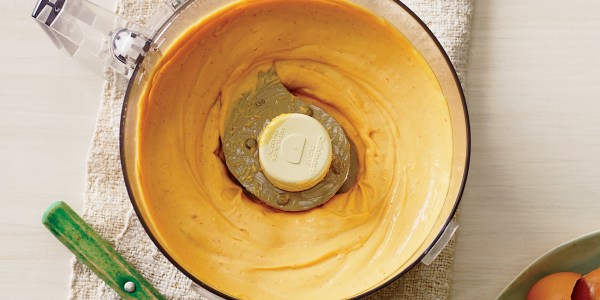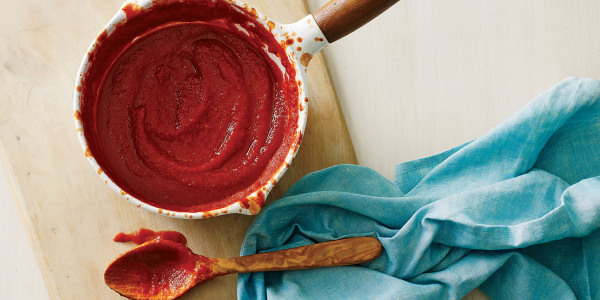If your refrigerator is overflowing with condiments, then you’ve probably questioned whether they all need to be in there. Or, you know, if Cardi B tweets "People who put their ketchup in the fridge are not to be trusted," then you might be questioning your ketchup placement.
As a general rule of thumb, condiments containing dairy, vegetables and fruits need to be refrigerated; those containing vinegar, sugar, salt, and alcohol probably don’t (but may benefit from a stint in the cold). Use your common sense, as well.
"Another way to think about which condiments need refrigeration is to consider the items you see on tables in restaurants and diners," explains Lauren Feingold, culinary and nutrition expert and co-founder of SHANTI protein and energy bars. “Common condiments such as ketchup, mustard and hot sauce are all regularly kept on the table, so don’t feel the need to refrigerate yours.” But here’s a more detailed breakdown on what does and doesn’t need to be refrigerator-bound.
Keep it in the fridge
Certain ingredients always require refrigeration. One no-brainer is dairy, so cream- or yogurt-based sauces must go in the fridge. Mayonnaise, made from eggs, needs to go in, too.
“Anything with vegetables or citrus (vinaigrettes with shallots, ponzu, citrus juice) must be refrigerated,” says Feingold.
Nut oils (like almond oil or sesame oil) should also be put in the fridge to prevent from going rancid.
While a common belief is that the high sugar content gives opened containers of jams, jellies, and preserves the ability to live outside the fridge, food safety experts say to err on the side of refrigeration due to quick spoilage.
Maybe yes, maybe no
There are a lot of condiments for which the fridge is optional. The key consideration is how long it’ll take your family to finish off the bottle. So, hopefully Cardi B uses up her ketchup quickly.
Feingold puts it like this: "The question that you have to ask yourself is, 'How frequently do you use ketchup?' If you love ketchup on your daily eggs and eat a lot of burgers and fries, then you can probably leave it on your kitchen table, much like at a diner. People that use their ketchup more sparsely may choose to refrigerate to ensure longer shelf life."
Ketchup will be fine for a month outside the fridge, while mustard will last for two months. Worcestershire sauce is another condiment that certainly benefits from fridge-time but isn’t necessary. Experts seem to debate about pickles — the high sodium content keep these preserved longer without refrigeration but they stay crunchier refrigerated. Go with your personal preference.
Refrigeration not needed
Common condiments that don’t require refrigeration include soy sauce, oyster sauce, fish sauce, honey and hot sauce.
Feingold says vinegars and olive oil (stored in a cool, dark place) are pantry-bound; coconut oil is actually best kept out of the fridge since it hardens below room temperature.
Peanut butter can also be on the shelf with one big caveat by a food safety expert: Make sure the kids aren’t sticking a jelly-coated knife into it when smearing onto their PB&J sandwiches. That’s asking for bacteria to grow and should go straight into the fridge.
Related:
This article was originally published on May 4, 2016.



